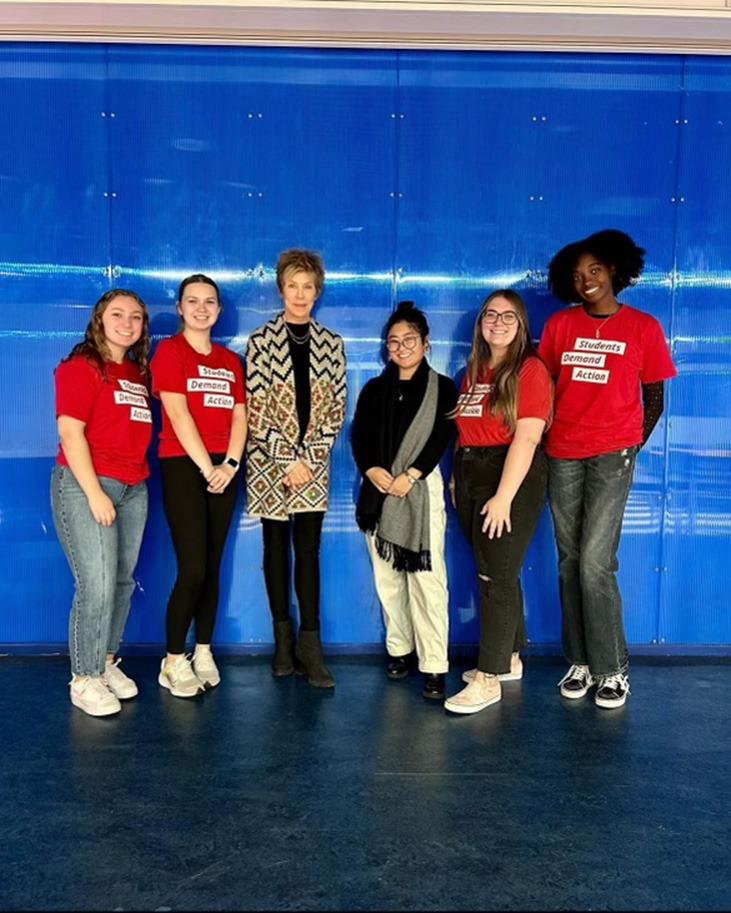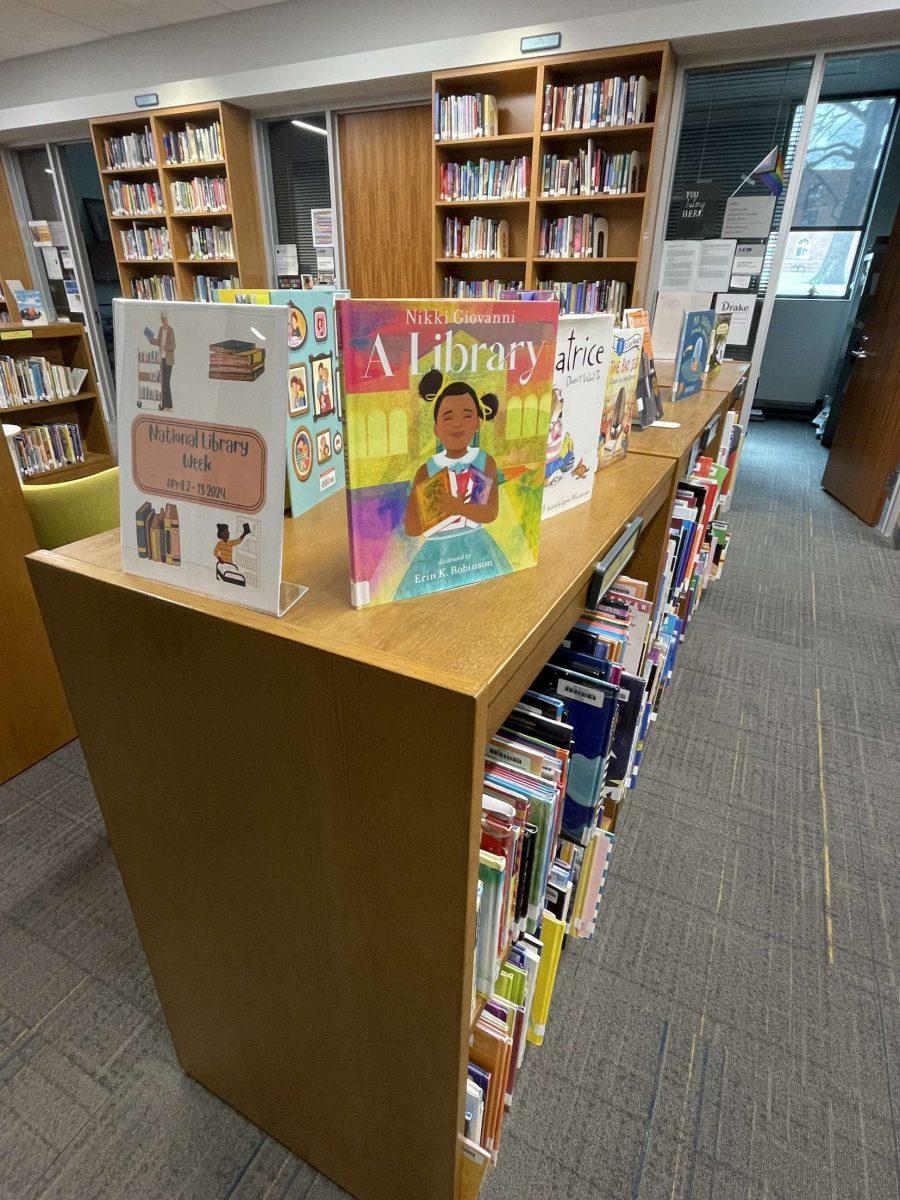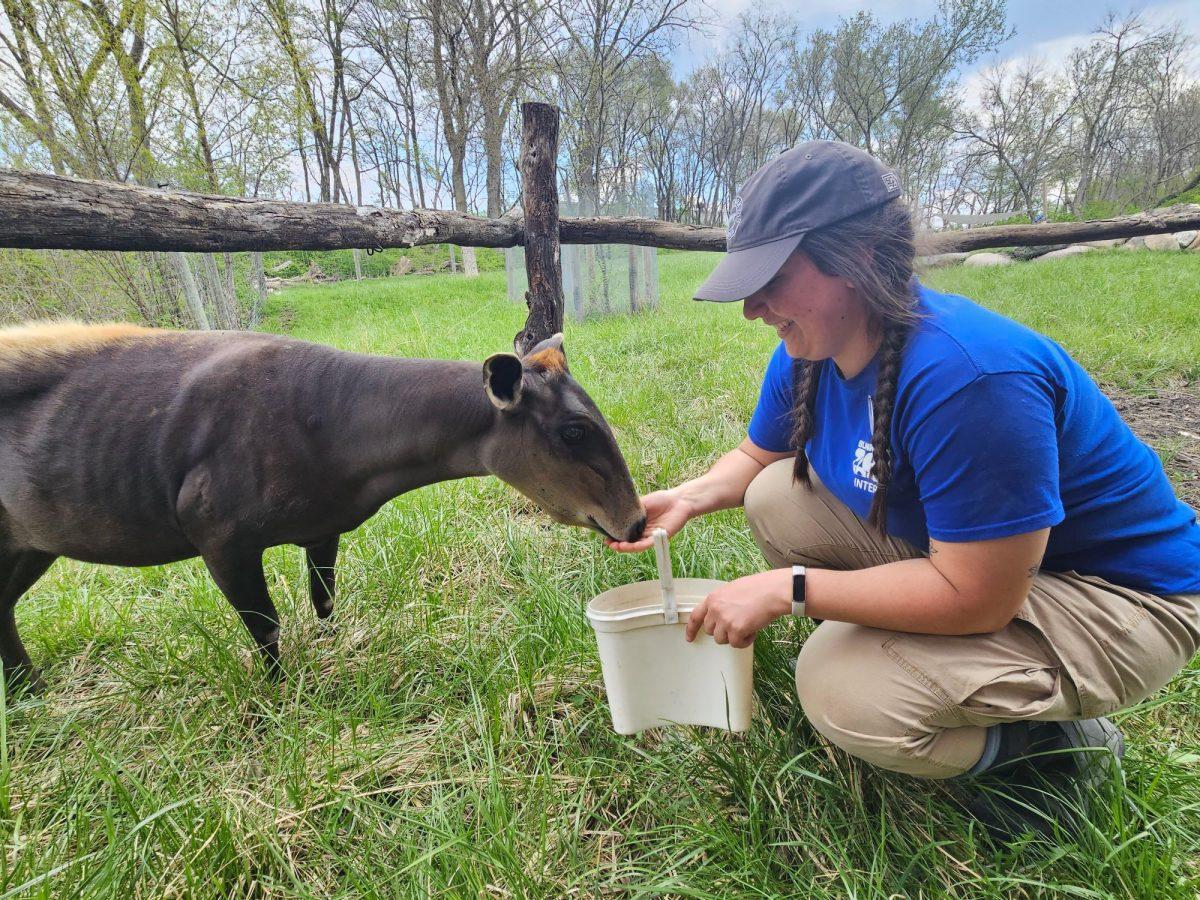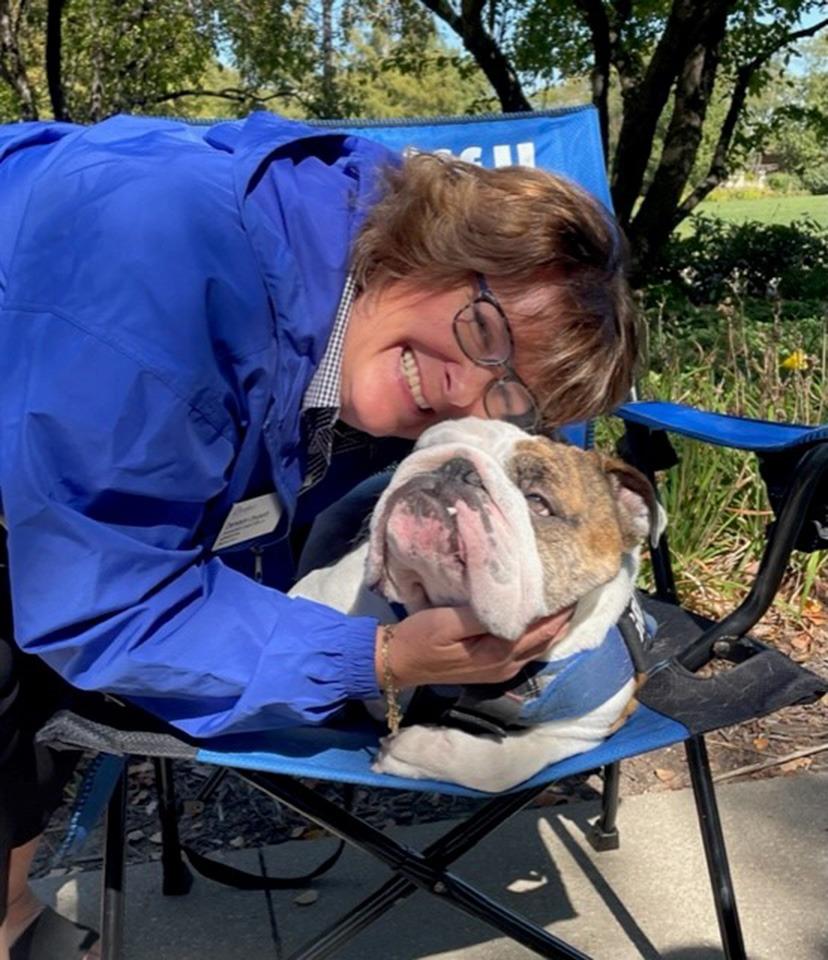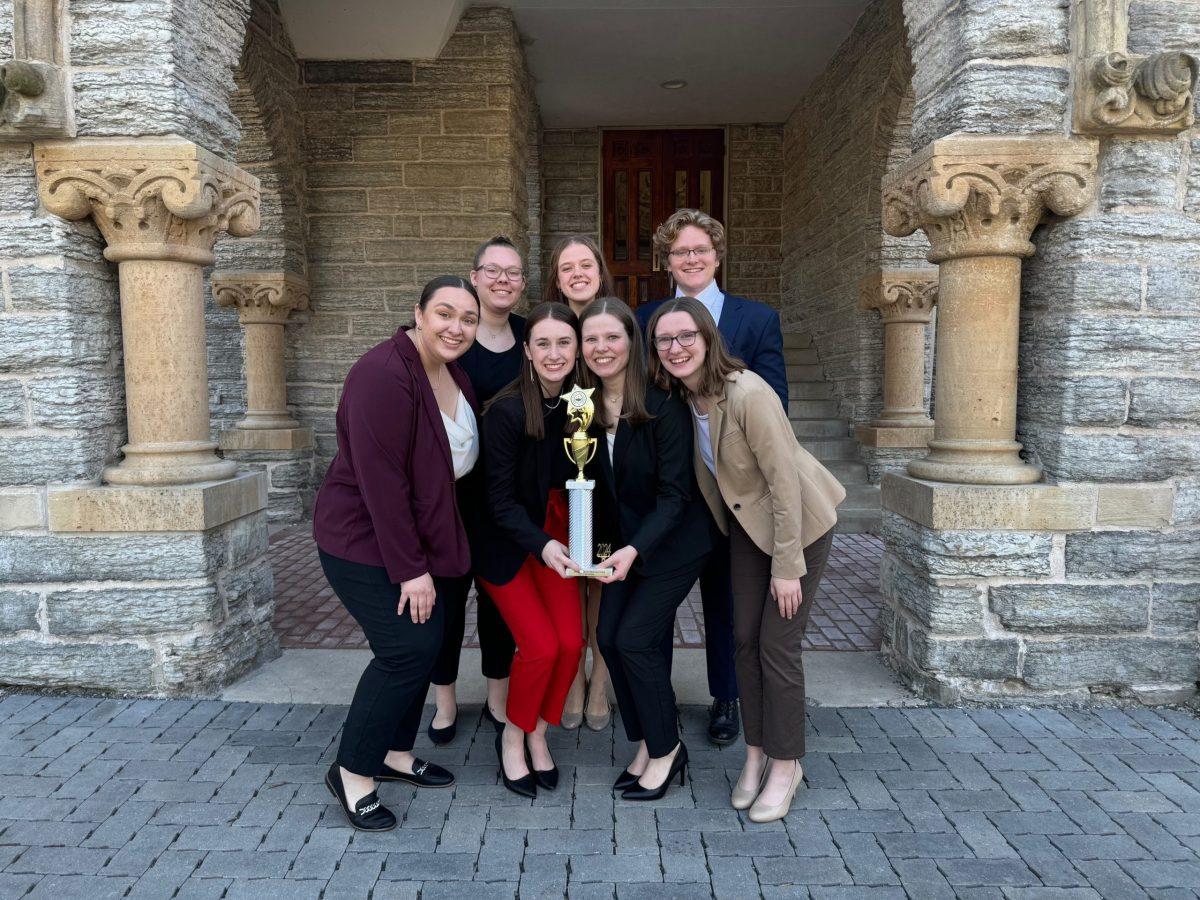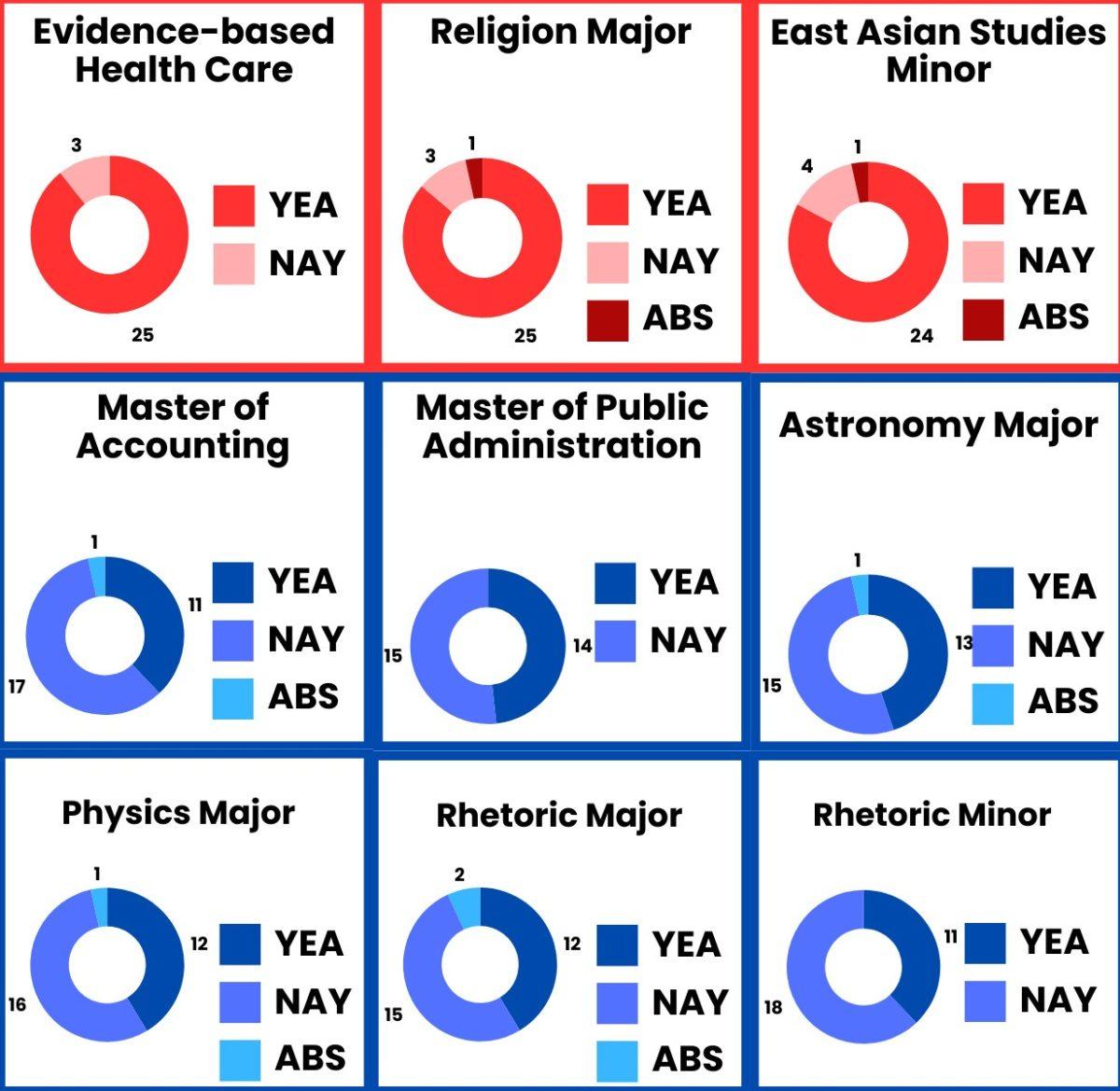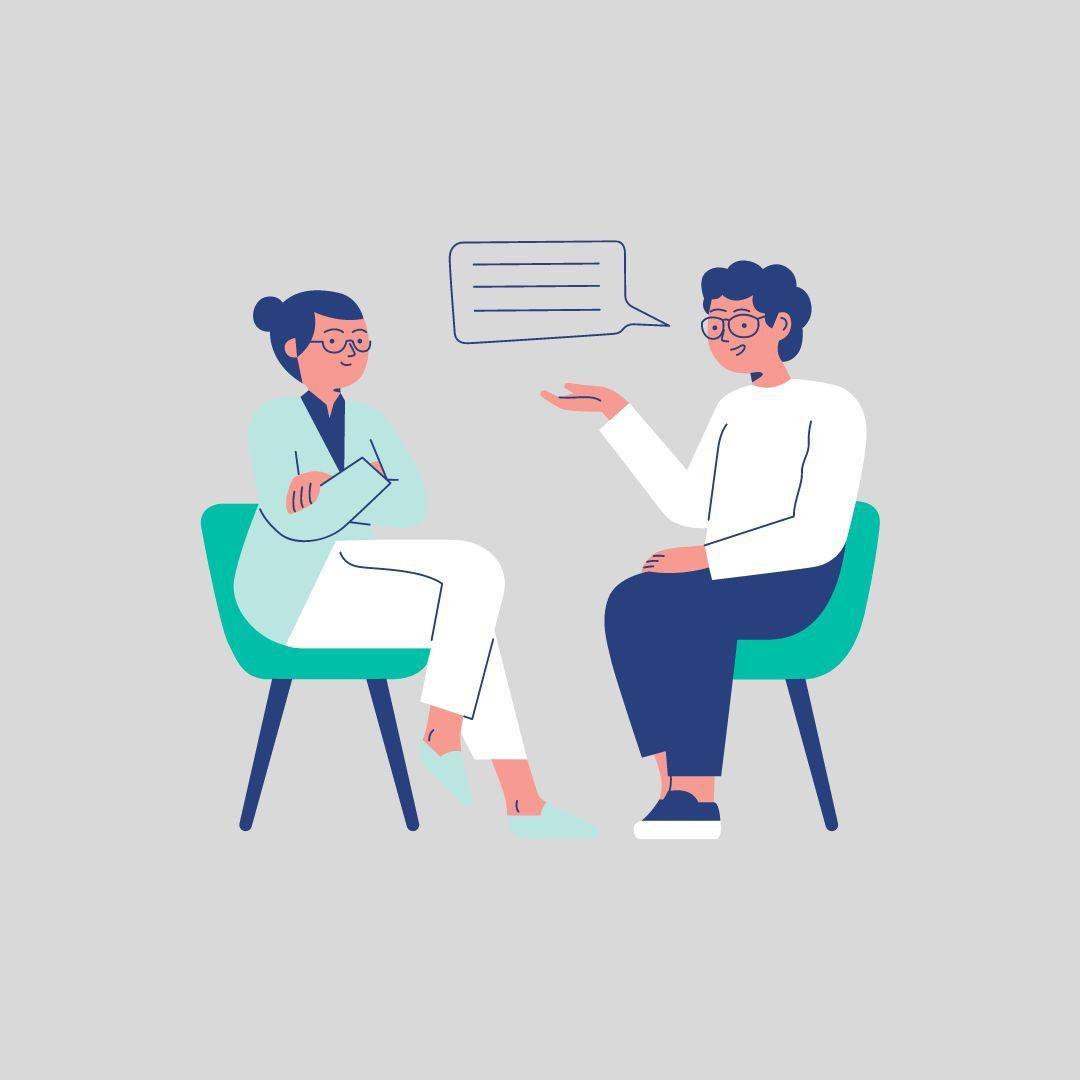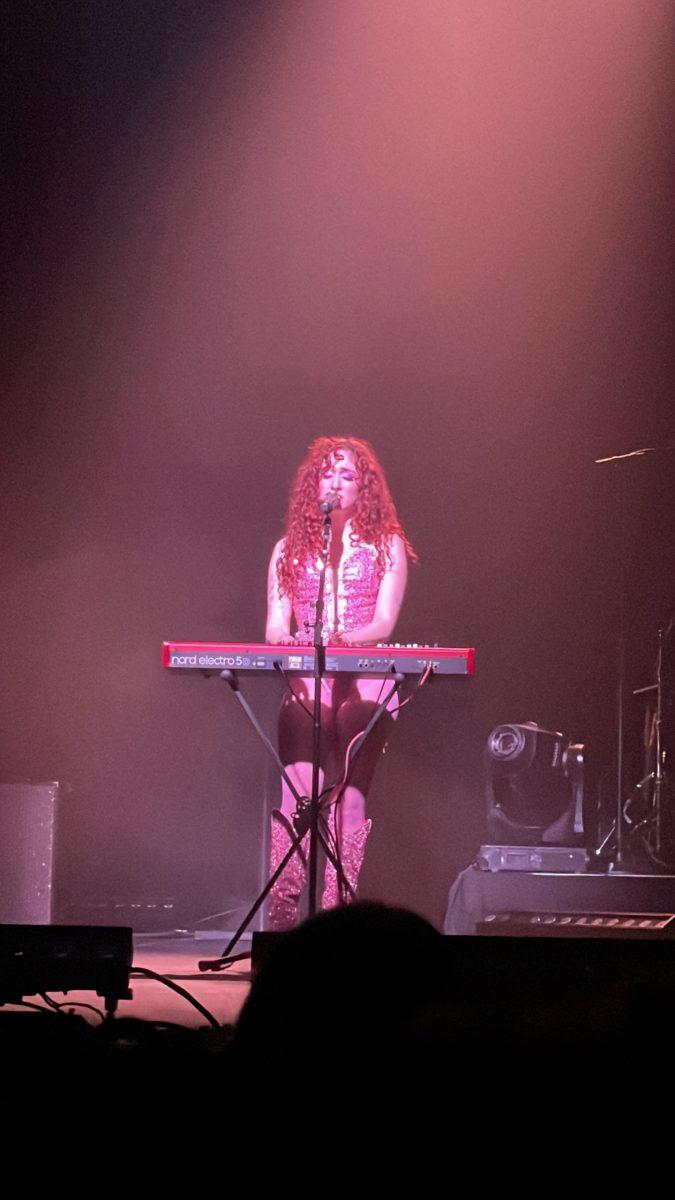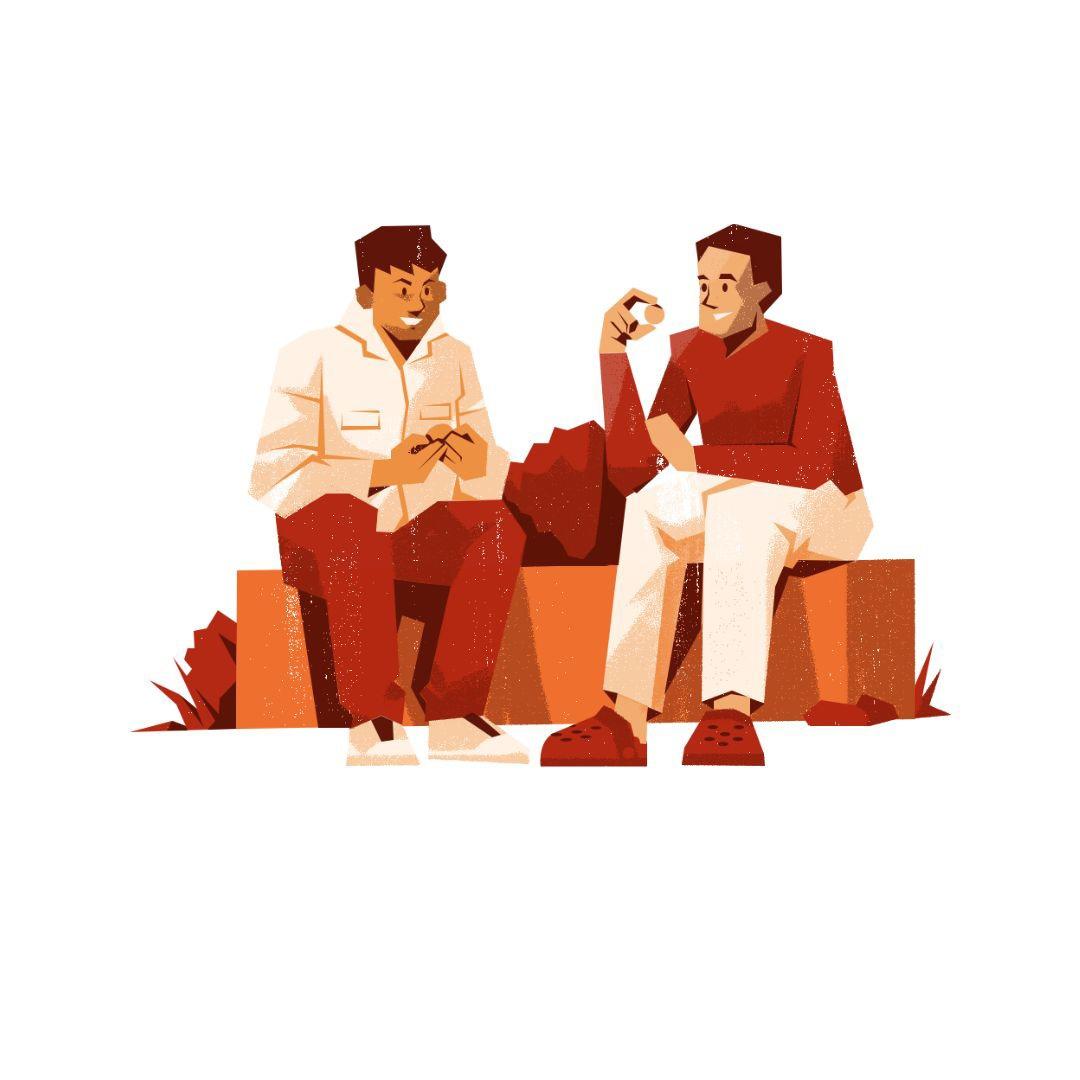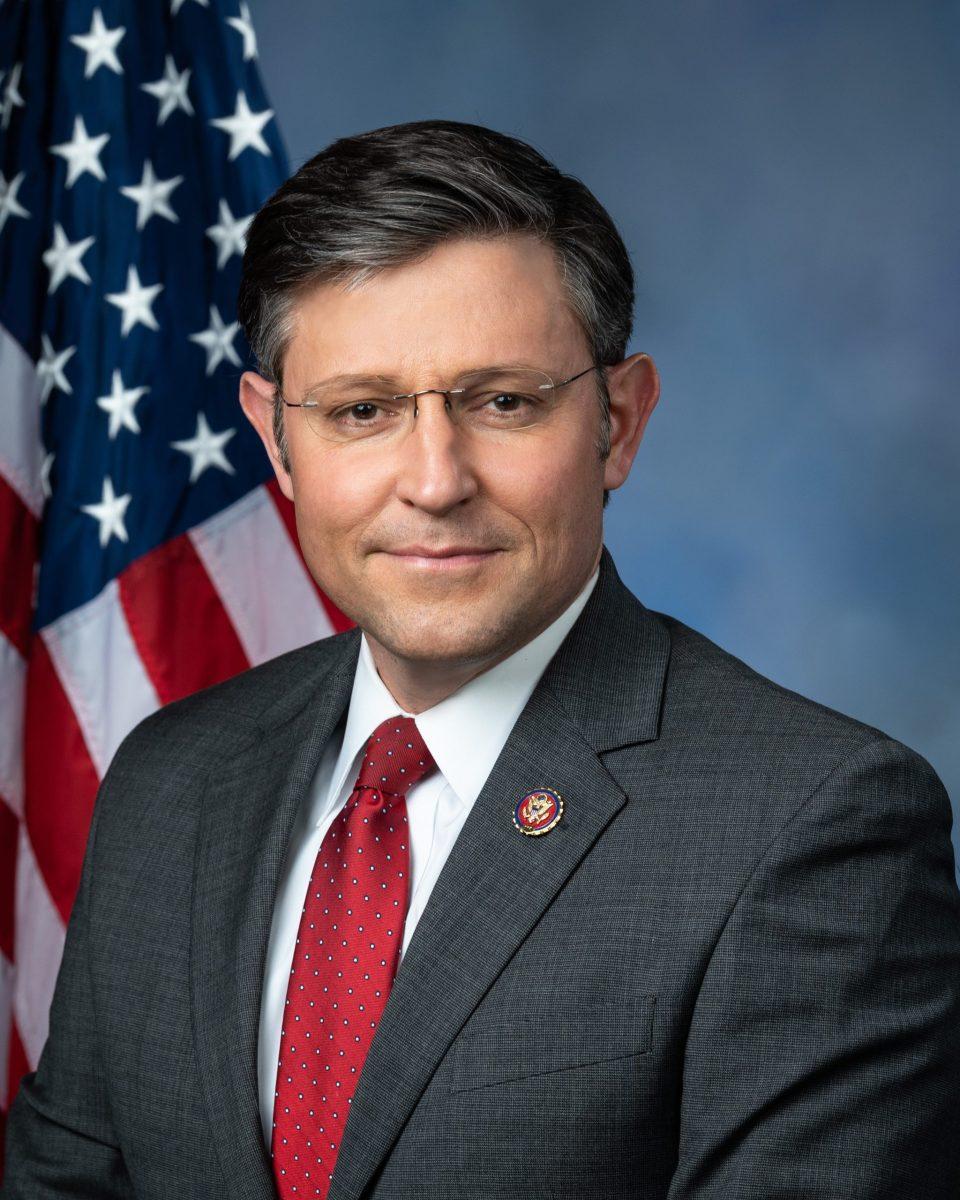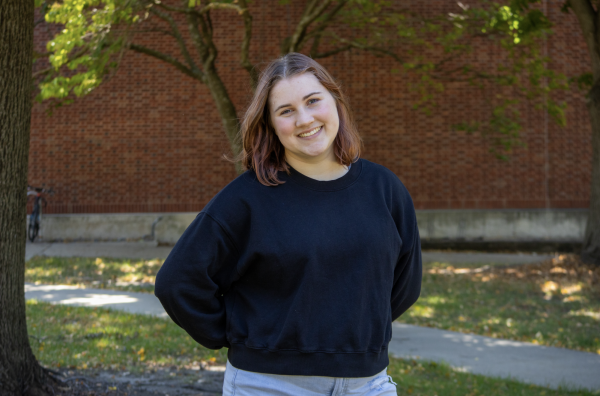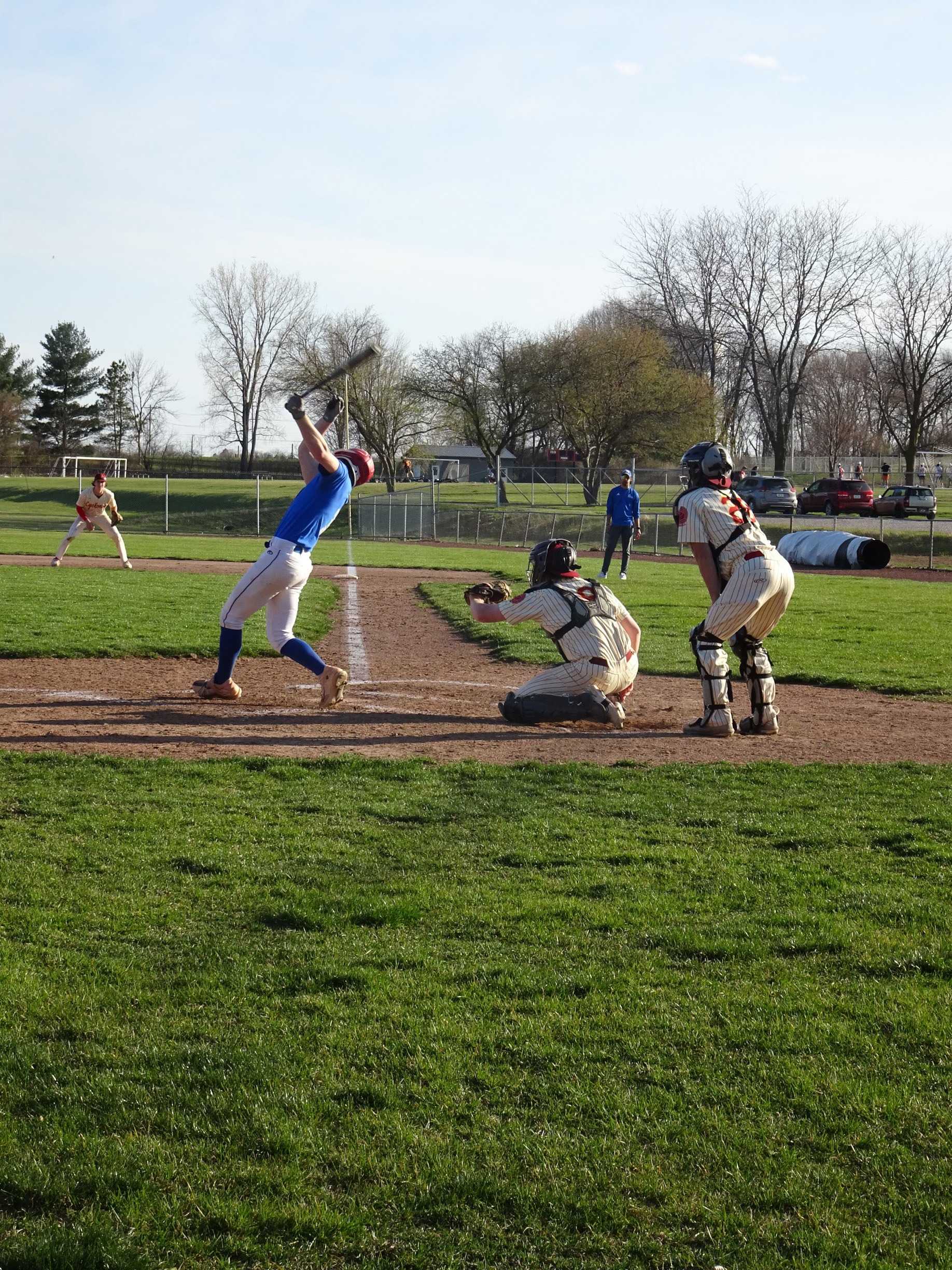
Drake Club Baseball
Last year, Drake Club Baseball co-presidents Ben Jackels and Emmett McMenamy noticed a lack of opportunities to play baseball on campus and decided to form a club team.
Many of the club’s current members are underclassmen who found out about the club at the fall activities fair.
“[We’re] trying to focus in on the younger guys and get those guys to love the club and to buy in,” McMenamy said. “Hopefully, we can keep doing the same thing every year, get strong classes of freshmen, so we can just start a culture and keep building it.”
Instead of charging dues, the club plans to request funding as an RSO and fundraise for jerseys, which cannot be covered by one-time funding. They encourage players to bring gloves and any other equipment they have to practice on the Drake intramural softball field.
“Nobody wants to fork over a bunch of money to play baseball,” McMenamy said. “Playing baseball isn’t going to be anyone’s number one priority. It’s just a little bonus on the side.”
Although Drake Club Baseball only recently received RSO status, the team has been practicing weekly and setting up games against other club teams, including Iowa State University and Creighton University. Drake Club Baseball played their first game on April 9 against Iowa State.
“It was the best experience many of our players, including myself, have had at Drake University,” Jackels said over email. “Our team gathered a couple of hits and made some fine plays on the field. While the final outcome didn’t turn out how we wanted, it was a significant step in the direction the team’s headed.”
The club hopes to join the National Club Baseball Association, which would allow them to play in a league and have a consistent schedule of games. Jackels predicts that joining the league and getting to the caliber where they can compete with other teams is only a year or two away.
“We’ve got a bright future ahead of us, and finally, I’m pleased to announce that baseball is back at Drake University,” Jackels said over email.
Students interested in joining the team can contact ben.jackels@drake.edu or emmett.mcmenamy@drake.edu.
Editor’s note: Emmett McMenamy is a Times-Delphic staff writer.
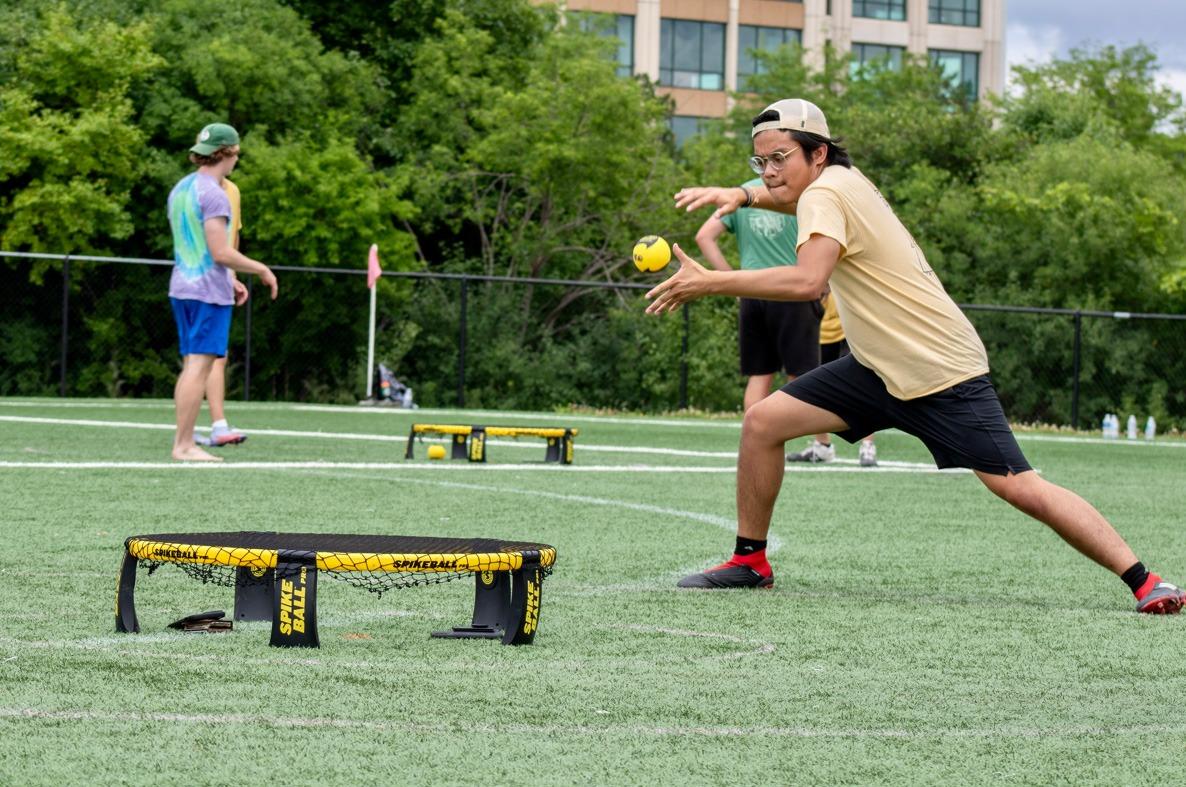
Spikeball Club
Spikeball is a staple on Helmick Commons in warm months. Now, there is an RSO dedicated to the sport.
Junior Nolan Henze, Spikeball Club president, discovered roundnet — typically referred to as Spikeball, the brand name — in high school. The game, referred to on Spikeball Inc.’s website as “if volleyball and foursquare had a baby,” is played with two teams of two.
According to Henze, the club is diverse in both year and playing experience.
“There’s a lot of people that never really played sports but just want to hang out with their friends, as well as people that have been around for a little while and [have] been playing Spikeball for a long time,” Henze said.
To keep Spikeball Club accessible for a busy student body, club members are always welcome to grab one of the club’s nets and start a pickup game outside of regular Saturday play. Henze said that, prior to the Spikeball Club, there weren’t a lot of “low-key,” free and “flexible” sports clubs at Drake.Although the club is most active in warmer months, they do play indoors in the winter.
“If you just want to text them to chat and be like, ‘oh, I want to do some pickups,’ the chat is able to give you that ability,” Henze said. “All you need is three other people.”
In the future, Henze hopes Spikeball Club will join the Spikeball College Roundnet Series. The club would compete in one tournament each semester with the possibility of qualifying for nationals. As an RSO, the club can enter the series and request the funding to pay tournament fees. Although the club is free to join on campus, students participating in the tournament may have to cover travel.
Interested students can reach out to nolan.henze@drake.edu.
Entrepreneurship Club
The Drake University Entrepreneurship Club is bringing back old Drake traditions and building a new community for student entrepreneurs. The club’s goal is to strengthen skills, knowledge and exposure to entrepreneurship.
“In high school, I was involved in something very similar, and I remember coming to Drake and being surprised that there wasn’t something like [an entrepreneurship club],” Vice President of Student Life Breckyn Lyons said in a Student Senate meeting on March 21.
While many of the over 40 members on the Bulldogs Entrepreneurs email list are business students, co-founder and president Molly Paar believes the organization can benefit students across campus.
“It’s really for anyone. Entrepreneurship has skills that can help in any professional setting,” Paar said.
This year, the Entrepreneurship Club has offered a variety of opportunities for members to develop and present their entrepreneurship skills, including hosting several guest speakers.
Paar also hopes to bring back the Bark Tank Competition, an annual event that began in 2013 under the name “Project Bulldog.” Students pitched businesses, projects and ideas to judges in this “Shark Tank”-style competition to earn a monetary prize. The competition was last held in 2019 but ended because of the COVID-19 pandemic.
This fall, the Entrepreneurship Club plans to host an entrepreneurship fair for the Drake community where student entrepreneurs can share their businesses. They also intend to offer activities, panels and competitions in the future.
“With access to more money and resources, we hope to engage more Drake students in the world of entrepreneurship,” treasurer Angel Loveridge said in an email interview.
For more information about the Entrepreneurship Club, email molly.paar@drake.edu.
Economics Club
The pandemic hit the Drake Economics Club hard and it lost its RSO status. However, senior Dew Veeraphan has revived the club over the past two years and successfully petitioned Student Senate to have it reinstated as an RSO.
The mission of the Economics Club is to cultivate connections and promote economics beyond the classroom. For Veeraphan, the club president, the social aspect of the club is key.
“Economics Club is a way for people to have a community so they can [have] connection [and] networking,” Veeraphan said.
The club meets regularly, often bringing in guest speakers, many of which are Drake alumni.
“If we have some more people, we can have some more money, and we can make some kind of networking event,” Veeraphan said.
Although the club is aimed at economics majors and minors as a way to engage with economics outside of their classes, there are no restrictions as to who is able to join.
“You have something to do outside the classroom, that’s what we try to be,” Veeraphan said. “It’s a hobby for everyone, everyone from in the econ major and outside the econ major too.”
Veeraphan wanted to create a club for economics rather than establishing a chapter of Omicron Delta Epsilon, the international economics honor society. Whereas the honor society requires students to pay a membership fee and is only open to upperclassmen, there are no barriers to joining the Economics Club.
The Economics Club is working on expanding the diversity in their club, especially in terms of gender. For example, the club has held a watch party for the past two years of the annual Women in Economics Symposium presented by the Federal Reserve Bank of St. Louis. The symposium invites women in the economics field to share the stories of their careers to inspire young women interested in economics.
“I love how you mentioned that the foundation of the Economics Club is to break stereotypes and break barriers about just men being in economics,” Equity and Inclusion Senator Jessica Avianeda Blanco told Veeraphan in the March 21 Student Senate meeting.
Students interested in Economics Club can learn more at @du_econclub on Instagram.
Math Motivators
Over 50% of Des Moines Public Schools students are not proficient in math, according to the Iowa Department of Education. However, a Drake organization is committed to making sure local students get the help they need to succeed.
Math Motivators is a national organization that offers free math tutoring to underserved students. Drake students who volunteer as tutors primarily work with students in grades 3-12 in the Des Moines area, but there are opportunities to virtually tutor students outside of the metro.
“Drake wants to be a school that cares about the surrounding Des Moines area, and what better way to do that than help kids who don’t have that leg up?” sophomore and treasurer Owen Fulton said.
Drake’s chapter of Math Motivators focuses on supporting their tutors by presenting tutoring tips and how tutors can leverage this experience in their future careers.
Co-president senior Bella Dennis believes in creating a social community for the tutors. In addition to building relationships in general meetings, the organization has also set up a bowling night for the tutors.
“It’s giving the kids a community and a place to be,” Dennis said. “If we’re all comfortable with one another, that makes us even better tutors.”
Since the beginning of the semester, Math Motivators has visited around 15 Drake classes to pitch the organization. Fulton said tutoring for the Math Motivators can help students’ communication skills.
“A lot of what people do when they get in the workforce is going to be to explain more complex topics to people who maybe don’t understand it on their level,” Fulton said.
For Fulton, the most rewarding part of being a tutor is getting to know the students and seeing their abilities develop.
“It’s just really cool to just see that I’m making an impact in just such a short amount of time,” Fulton said. “I’m only in there for 30 minutes a week, but I can clearly see it’s paying dividends for them.”
To become a tutor, students need to take a background check and attend tutoring training with executive council members, which Fulton estimates only takes around an hour.
Students interested can contact wallace.wisniewski@drake.edu or annebelle.dennis@drake.edu.
Drake University Students Demand Action
Firearms are the number one killer of children and teens aged one to 19, according to the CDC. Junior Chloe Gayer has been working to start a chapter of Students Demand Action (SDA) — a national student organization founded in 2016 to combat gun violence — at Drake for the past two years.
“If I were to die tomorrow, the most likely reason is a bullet,” Gayer said at a March 28 Student Senate meeting. “That’s why we need this organization. That’s why we need it on every single college campus.”
Gayer, the president and group lead, has been involved with SDA for the past five years and started chapters at several high schools and universities throughout the state. She has also had the opportunity to work on federal policies and voter registration campaigns.
“I’ve met amazing people in pretty much every single state in this country,” Gayer said. “I’ve been able to build my network and build opportunities [and] gain experiences. It’s so special, this organization, because we have such a national presence.”
SDA is a subsidiary of Everytown for Gun Safety. Everytown advocates for gun control and against gun violence, while SDA is specifically dedicated to student activism.
The organization amassed almost 50 members this year. Drake’s SDA receives funding from the national organization so they do not require funding from Drake, but Gayer wanted the Drake affiliation to help with recruitment.
“There’s so many students who believe in this organization, believe in our cause and want to help us but truly just don’t know about it,” Gayer said.
Throughout the year, the organization has held informational meetings and partnered with other organizations and groups to host panels. Panelists highlighted how gun violence affects specific groups, including women and girls and Asian and Pacific Islander Americans. Gayer plans to host a similar panel this semester on how gun violence impacts the Black community, hoping to partner with National Pan-Hellenic Council fraternities and sororities on campus.
Students interested in joining can reach out to chloe.gayer@drake.edu or @drake_sda on Instagram.
DISCO (Disability Coalition)
Being a disabled college student can be lonely. Sophomore Morgan Ryan needed a group of people who knew what it was like to be a student with a disability or chronic illness. To fill this need and the needs of other disabled students on campus, she formed the Disability Coalition, or DISCO.
“We are an organization that is created for students with disabilities by students with disabilities,” Ryan, the president of DISCO, said. “Our main goal is to provide a supportive space for students with disabilities and chronic illnesses to come together.”
DISCO meets every other week at the Harkin Institute, with an option to join virtually via Zoom. The meetings are largely discussion-based, providing members with a safe, supportive space to share their experiences. DISCO members are also working on accessibility-related projects.
“There were a few little pockets of people doing disability-related work at Drake, but we weren’t really working together,” Ryan said. “My hope with this was that we could better coalesce around this issue and be able to use our collective voices better to advocate for accessibility and disabled folks.”
Currently, DISCO has around 45 members. Most identify as disabled or chronically ill, but not all.
“We welcome everybody, including allies,” Ryan said at a March 28 Student Senate meeting. “We see all people as integral to our mission to make this a more accessible campus.”
Ryan encourages organizations on campus to reach out so DISCO can reach their goal of making all events as accessible as possible.
“[Becoming an RSO] meant a lot to us, the disabled folks on campus who feel disaffected, who feel maybe that they’re not seen by Drake, who feel like they don’t matter,” Ryan said. “This is a great way of recognition that we do matter, we are wanted here, we are valued as a community.”
Interested students can learn more about DISCO and join the mailing list through @disabilitycoalition.du on Instagram.

